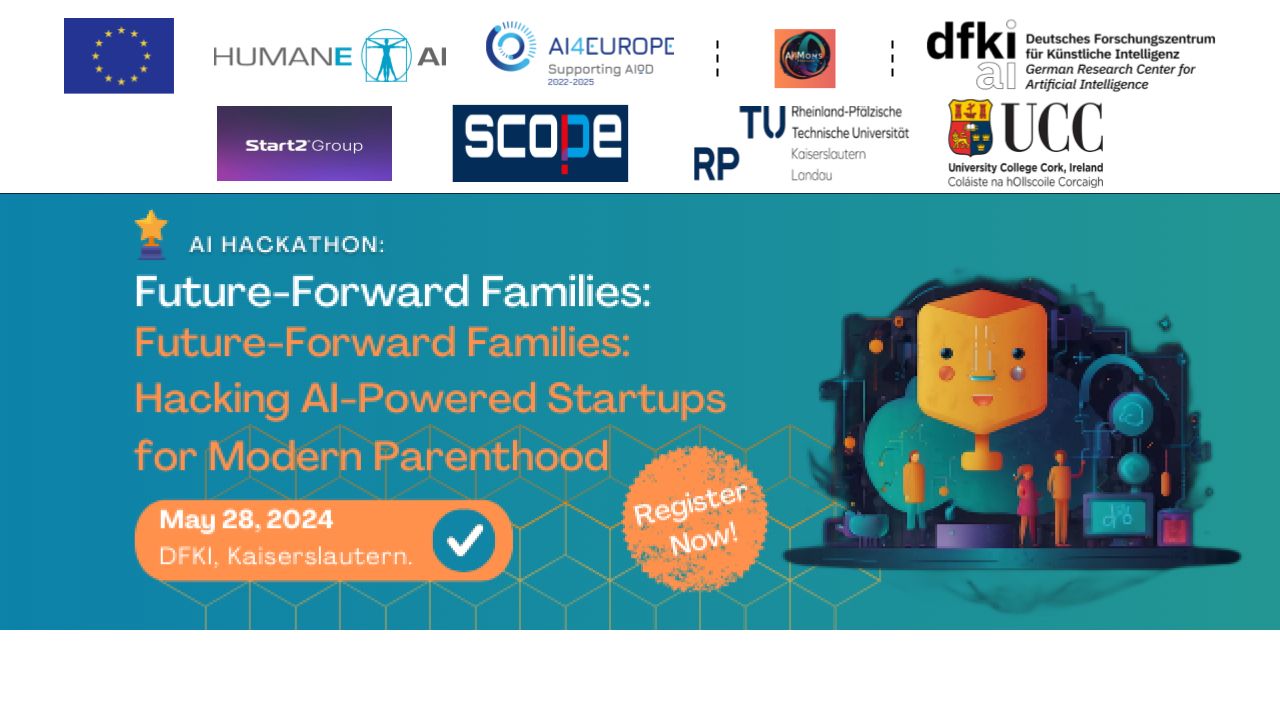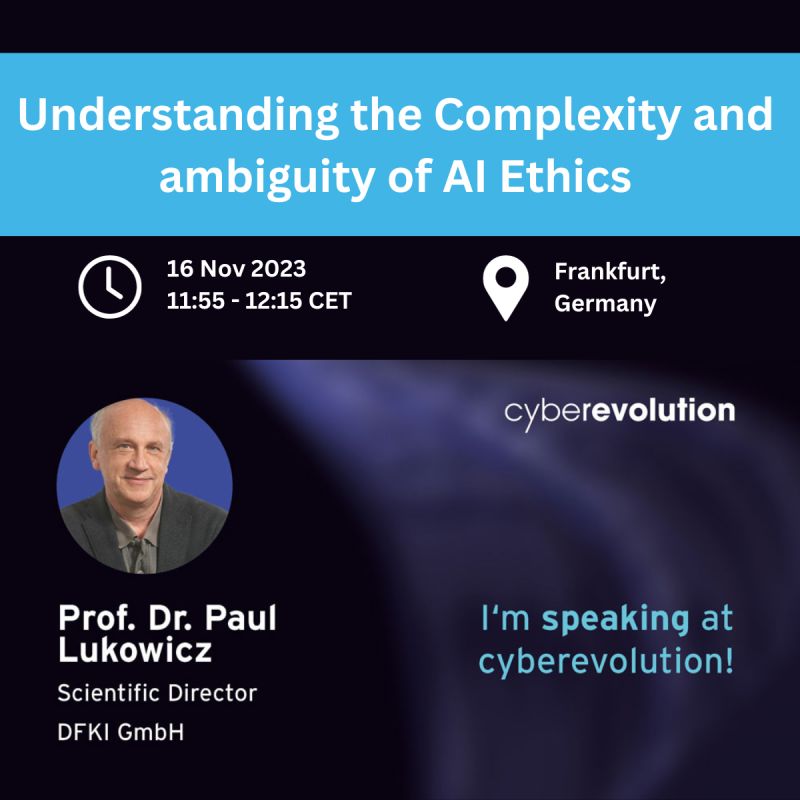Humane AI Net proudly co-organized the 2024 Doctoral Consortium as part of the Hybrid Human-Artificial Intelligence Conference and #HHAISummerSchool, bringing together 11 PhD students engaged in diverse interdisciplinary research across machine learning, artificial intelligence (AI), human-computer interaction (HCI), and psychology.
The event featured invaluable mentorship from renowned experts, including Wendy Mackay and Paul Lukowicz from Humane AI Net, alongside Steve Brewster and Stefan Schlobach. Wendy Mackay and Steve Brewster delivered impactful talks, offering guidance on scoping and navigating the PhD journey for success.
The consortium was organized and moderated by Passant Elagroudy (Humane AI Net), Michiel van der Meer, and Harko Verhagen, providing a supportive environment for PhD students to exchange ideas and build connections within the field.
For more details, visit the Doctoral Consortium page: https://lnkd.in/dN8jTnAD and the HHAI Summer School program: https://lnkd.in/e_t2TKkn.
At the recent #CommunityWorkshop, Cecile Huet from the European Commission announced significant funding initiatives aimed at advancing generative AI (GenAI) across Europe. With €4 billion allocated for GenAI development and €500 million specifically designated for its applications, the initiative underscores Europe’s commitment to leading in AI innovation and responsibly integrating AI technologies into diverse sectors.
These funding schemes, which are part of the European Commission’s larger digital transformation agenda, are designed to accelerate research, ethical development, and practical applications of GenAI, strengthening Europe’s competitive position in the global AI landscape. The funding will support projects focused on technical innovation, societal impact, and the creation of secure, reliable AI systems that align with European values.
The #GenAI4EU initiative will cover various applications, ranging from industry solutions to public sector advancements, creating opportunities for researchers, developers, and companies to contribute to Europe’s digital future.
For those interested in following the developments, the live stream and full program details can be accessed here: https://lnkd.in/d_r6-vmX, with comprehensive funding information available at: https://lnkd.in/dCPfgPJp.
The 3rd International Conference on Hybrid Human-Artificial Intelligence (HHAI 2024) commenced with great enthusiasm at Malmö University, Sweden. In cooperation with Umeå University and sponsored by HumaneAI-Net, the event marked a significant milestone in the AI community.
The opening ceremony was followed by an impressive showcase of macro-projects, featuring detailed posters and engaging demos. Researchers and attendees explored innovative AI solutions and their applications, fostering a collaborative environment for knowledge exchange and future partnerships.
The successful start of HHAI 2024 sets a promising tone for the rest of the conference, highlighting the vital role of collaboration in advancing AI research and its impact on society.
The “AI in Africa & SDGs: Bridging Networks and Fostering Climate Action” workshop was successfully held on June 11, 2024, as part of the 3rd International Conference on Hybrid Human-Artificial Intelligence (HHAI 2024). Hosted at Malmö University, in collaboration with Umeå University and organized by the Network for Artificial Intelligence, Knowledge, and Sustainable Development (Naixus), this workshop focused on leveraging Artificial Intelligence (AI) to advance Sustainable Development Goals (SDGs) with a special emphasis on climate action in Africa.
Workshop Highlights
The workshop aimed to harness AI for climate resilience, sustainable agriculture, and policy support for SDGs. It featured a half-day session exploring AI’s role in these areas, alongside a Discovery Workshop that included brief, impactful presentations on AI innovations for SDGs. The event was designed to stimulate discussion, encourage collaboration, and showcase AI solutions to connect researchers, practitioners, policymakers, and communities across Africa.
The workshop concluded with a call to action for continued collaboration and knowledge exchange to strengthen networks for AI and SDGs in Africa. By highlighting successful AI projects and fostering dialogue among diverse stakeholders, the workshop aims to outline actionable strategies for leveraging AI in climate action and contribute to the achievement of SDGs through innovative technological applications.
Humane AI Net joined forces with the AI4Moms initiative in collaboration with Start2 Group GermanEntrepreneurship, AI4Europe AIoD, Societal COmmunication in times of PErmacrisis (SCOPE), RPTU Kaiserslautern-Landau, University College Cork and are delighted to announce our upcoming AI Hackathon:
🎙 Future-Forward Families: Hacking AI-Powered Startups for Modern Parenthood hashtagfutureforwardfamilies
⏰ When? Tue May 28th, 2024
📌 Where? Kaiserslautern, Germany in Deutsches Forschungszentrum für Künstliche Intelligenz (DFKI)
Join us for a one-day Hackathon to 1️⃣ learn how AI can empower parents to streamline their daily tasks and 2️⃣ propose a startup focused on family-oriented solutions using AI. You can be one of the 3 winning teams 🏅🏅
👯 Who should join us? Parents seeking innovative solutions for family life AND/OR tech enthusiasts eager to dive into the world of AI.
⚠⚠ No prior programming or AI tool experience is required!
🌐 Check our website: https://lnkd.in/dTmEiNxv
🤼 Register now: https://lnkd.in/dem2PE9Z
⏰ Registration deadline: rolling basis (few spots left .. sign up & we’ll send a confirmation based on availability within 24 hours)
chatgpt largelanguagemodels parenting hackathon
hacking startups science AIToolsAI4Moms

Congratulations to Antti Oulasvirta, one of the consortium leaders, for receiving the esteemed ERC grant, a prestigious European funding award that enables scientists to pursue groundbreaking research visions. Oulasvirta’s work, centered on creating computational models of human behavior, thought processes, and experiences, aims to enable computers and AI to better understand their users. His ambitious vision goes beyond building functional user models; he envisions future systems where user models can interact dynamically within their operational environments, offering richer, more adaptive user experiences.
In addition to Oulasvirta’s achievement, other notable research initiatives within the consortium are breaking new ground in environmental sustainability and digital geopolitics:
These projects represent cutting-edge research in both technology and social science, supported by the ERC grant to drive innovation and sustainability in fields as varied as AI, environmental science, and digital policy.
The first day of the Humane AI meeting at Umeå University’s Universum Building marked a deep dive into four key macroprojects aimed at advancing human-AI collaboration and understanding the broader societal impact of generative AI (GenAI). Researchers and experts gathered to push forward these ambitious projects, each targeting critical aspects of AI’s integration with human activity and its ethical considerations.
The four macroprojects under discussion included:
The Humane AI meeting sets the stage for a collaborative and forward-thinking approach to these projects, each essential for building a future where AI enhances, rather than detracts from, human experiences.
On June 6-7, a collaborative workshop led by the Societal COmmunication in times of PErmacrisis (SCOPE) project, along with #AIonDemand and #NestBW, showcased the transformative potential of generative AI (GenAI) in social science research. The event aimed to introduce social scientists to AI tools that can reimagine research processes, drawing in over 40 interdisciplinary attendees, including sociologists, political scientists, media scientists, journalists, physicists, AI researchers, and computational social scientists.
The workshop featured five international speakers who provided hands-on insights and demonstrations:
Organized by Passant Elagroudy, Talisa Schwall, Olga Zagovora, Simone Mitzner, and Michaela Maier, the event concluded with hands-on group activities, where participants reimagined their research projects in the light of GenAI.
Stay tuned for the talk recordings and materials, soon to be available on #AIonDemand.
Event details: https://lnkd.in/dt57j96p

Dr. Alexandra Diening and Jie Li recently shared insights at the ADRA annual event, discussing the impact of AI and the need for societal awareness around it. Their presentation at the Humane AI Net workshop inspired Dr. Diening to launch the Human-AI Symbiosis Alliance®, focusing on mutual benefits between humans and AI—whether in mutualism, commensalism, or even competitive dynamics. They highlighted the power of synthetic users in participatory design and urged the audience to explore AI capabilities firsthand before forming judgments.
What’s your take? Are we headed for mutualism or competition with AI? Let us know!